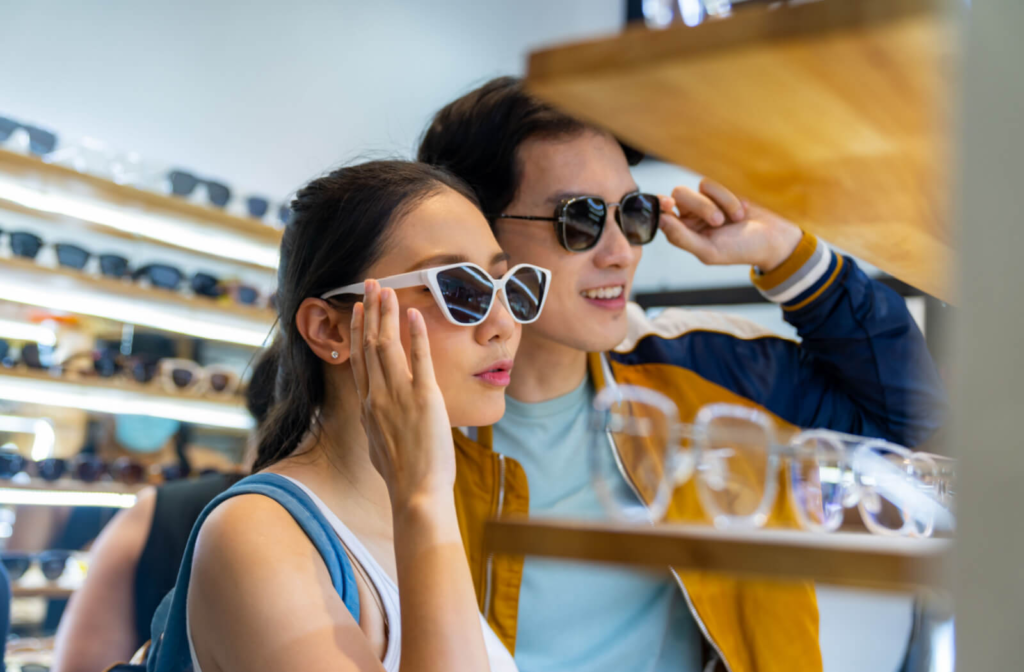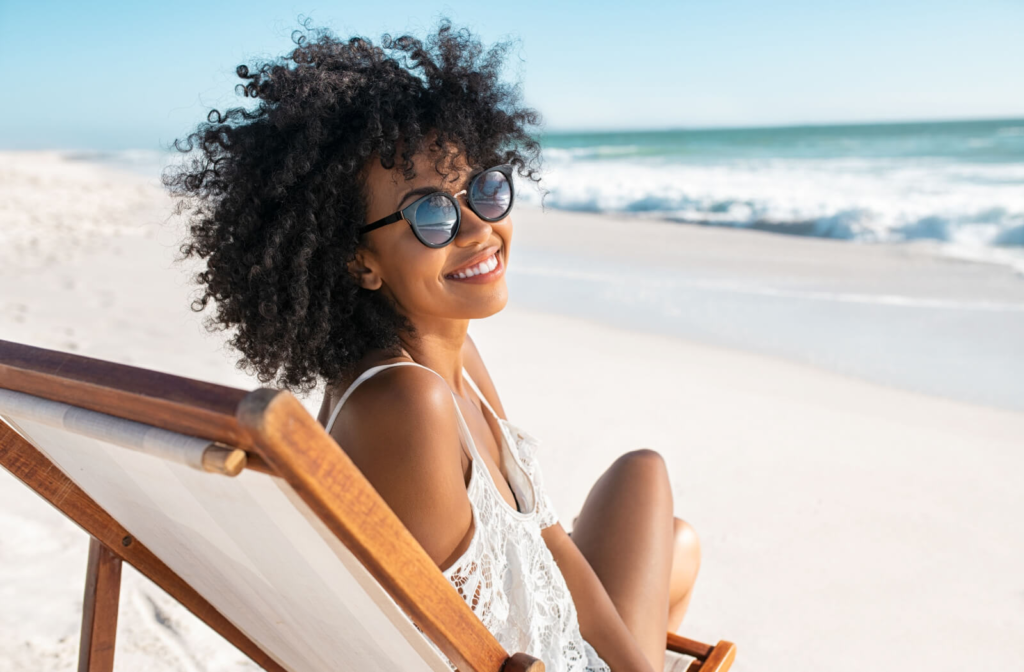When it comes to picking sunglasses, most people just choose a pair that’s comfortable and stylish, but there’s one more factor that should always be considered: how well they actually protect your eyes.
Protecting your eyes from harmful UV rays is essential for maintaining proper eye care, so it’s important to make sure you choose the right pair of sunglasses for your needs. Usually, you can tell if your sunglasses are UV-blocking when purchasing them by checking their label, but there are also ways to test them at home. You can also use a UV flashlight to determine how well they reflect light rays, or visit your optometrist so they can check the lenses for you!
What Does it Mean if Sunglasses Are UV-Blocking?
When a pair of sunglasses offers UV protection, it refers to their ability to block harmful ultraviolet rays. These rays are categorized into 2 types:
- UVA rays, which have a longer wavelength and penetrate deep into the skin and eyes, contributing to premature aging of the skin and increasing your risk of developing certain eye conditions
- UVB rays, which have a shorter wavelength and are primarily responsible for both sunburns and short-term damage to your eyes
Sunglasses that offer UV protection are specifically designed to block both of these types of rays. During manufacturing, the lenses are treated with a special coating that contains chemicals to absorb and filter out harmful UV rays. By preventing them from reaching your eyes, UV-protective sunglasses help reduce the risk of eye damage to help maintain healthy vision.

Do All Sunglasses Have UV Protection?
While most sunglasses offer shade and reduce the brightness of sunlight, not all sunglasses are UV-blocking. In your sunglasses, it’s essential to distinguish the difference between a pair of cosmetically-tinted sunglasses and a pair that actually provide proper UV protection.
Some sunglasses are designed so that they appear to be able to block UV rays through the use of dark, tinted lenses that reduce visible light. However, this doesn’t guarantee that they can fully protect your eyes from harmful radiation. While they may help you feel more comfortable by filtering out bright light, they aren’t a safe way to avoid potential eye conditions caused by exposure to sunlight.
There are different levels of UV protection available for sunglasses. Typically, the most effective types are labeled as having 100% UV protection or UV 400. A label of 100% UV protection indicates that the sunglasses have been treated to block all UVA and UVB rays and provide your eyes with maximum protection. A label indicating UV 400 means the lenses block wavelengths up to 400 nanometers, stopping almost all UVA and UVB rays from reaching your eyes.
How Can I Tell if My Sunglasses Have UV Protection?
There are a few methods you can try to determine whether or not your sunglasses offer complete UV protection:
- Check for a label before purchase that indicates they block UV rays. By searching for a 100% UV protection or UV 400 label, you can tell that the sunglasses block both UVA and UVB rays.
- Use a UV flashlight. If you have a UV flashlight or blacklight flashlight, you can test the lenses to see how effective they are. Turn out the lights and shine the UV light on the lenses. If the lenses have been treated, they shouldn’t allow the light to pass through or may exhibit a faint blue-purple glow. If the light passes through cleanly, the lenses aren’t treated for UV.
- Visit your optometrist. They often have UV meters that can measure the UV protection of sunglasses accurately. The optometrist can test your sunglasses and provide you with reliable information about how well they protect you from UV rays.
Where to Get UV-Blocking Sunglasses
When it comes to purchasing sunglasses that can truly protect your eyes, there’s a simple way to go about it: visit your optometrist. By purchasing sunglasses through an optometrist or optical shop, you can be confident that they meet recommended safety standards and properly protect your eyes.
It’s important to regularly visit your optometrist for comprehensive eye exams, which can help you with 2 things at once: get your eyes checked and get yourself a new pair of sunglasses at the same time!
At Total Vision Del Mar, we understand how important it is to have a pair of protective sunglasses. Schedule an appointment with us today, and let us help you find the perfect pair!



